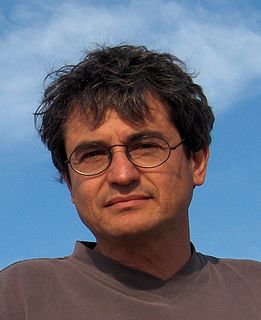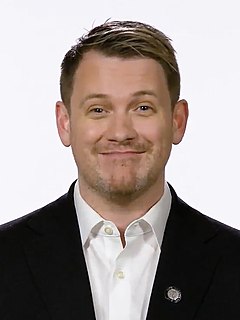A Quote by Arthur Schopenhauer
He who can see truly in the midst of general infatuation is like a man whose watch keeps good time, when all clocks in the town in which he lives are wrong. He alone knows the right time; what use is that to him?
Related Quotes
There was never a man born so wise or good, but one or more companions came into the world with him, who delight in his faculty, and report it. I cannot see without awe, that no man thinks alone and no man acts alone, but the divine assessors who came up with him into life,--now under one disguise, now under another,--like a police in citizen's clothes, walk with him, step for step, through all kingdoms of time.
We never really see time. We see only clocks. If you say this object moves, what you really mean is that this object is here when the hand of your clock is here, and so on. We say we measure time with clocks, but we see only the hands of the clocks, not time itself. And the hands of a clock are a physical variable like any other. So in a sense we cheat because what we really observe are physical variables as a function of other physical variables, but we represent that as if everything is evolving in time.
Man is like a tree. If you stand in front of a tree and watch it incessantly, to see how it grows, and to see how much it has grown, you will see nothing at all. But tend it at all times, prune the runners and keep it free of beetles and worms, and all in good time-it will come into its growth. It is the same with man: all that is necessary is for him to overcome his obstacles, and he will thrive and grow. But it is not right to examine him hour after hour to see how much has already been added to his stature.
There are four types of men in this world: 1. The man who knows, and knows that he knows; he is wise, so consult him. 2. The man who knows, but doesn't know that he knows; help him not forget what he knows. 3. The man who knows not, and knows that he knows not; teach him. 4. Finally, there is the man who knows not but pretends that he knows; he is a fool, so avoid him.
Consider the word “time.” We use so many phrases with it. Pass time. Waste time. Kill time. Lose time. In good time. About time. Take your time. Save time. A long time. Right on time. Out of time. Mind the time. Be on time. Spare time. Keep time. Stall for time. There are as many expressions with “time” as there are minutes in a day. But once, there was no word for it at all. Because no one was counting. Then Dor began. And everything changed.
There are occasions on which it is noble to dare to stand alone. To be pious among infidels, to be disinterested in a time of general venality, to lead a life of virtue and reason in the midst of sensualists, is a proof of a mind intent on nobler things than the praise or blame of men, of a soul fixed in the contemplation of the highest good, and superiour to the tyranny of custom and example.
God is in the business of strategically positioning us in the right place at the right time. A sense of destiny is our birthright as followers of Christ. God is awfully good at getting us where He wants us to go. But here’s the catch: The right place often seems like the wrong place, and the right time often seems like the wrong time.
The Greeks had two words for time. Chronos is the time we usually keep an eye on. Kairos was our participation of time. Time that moves us so that we lose our sense of time; timeless time; moments at which the clocks seems to stop; feeding, renewing, more motherly time. It's the time with which we feel one instead of outside of it, the self, the tao, the love that connects us to others.








































